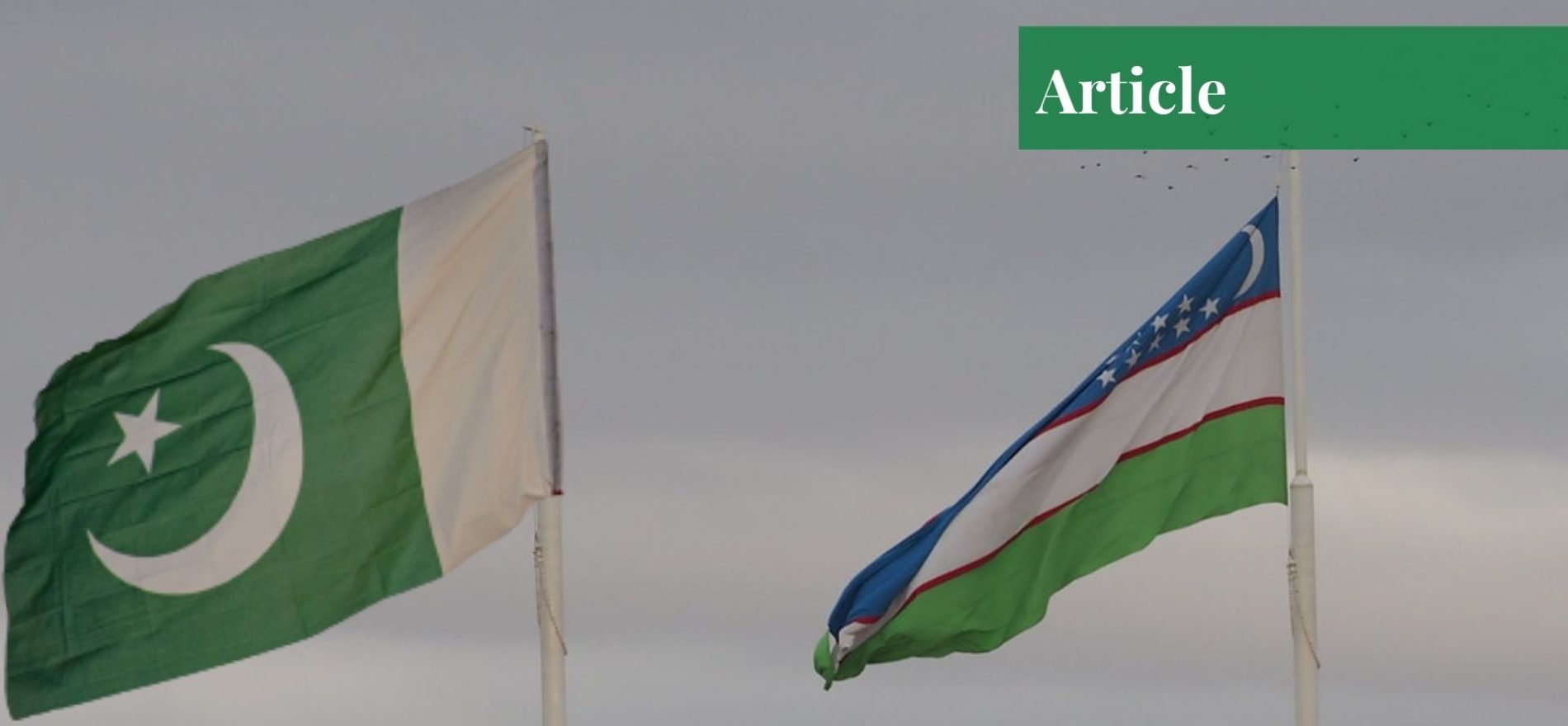Syed Haris Shah is a pupil of peace and conflict studies at National Defence University, Islamabad.
Uzbek President’s Maiden Visit
President Shavkat Mirziyoyev of Uzbekistan arrived in Pakistan for a two-day state visit to meet Prime Minister Imran Khan and other high-level officials. Imran Khan welcomed the President of Uzbekistan Shavkat Mirziyoyev on Thursday, 3rd March 2022. The state visit made by President Mirziyoyev symbolized the 30th anniversary of Uzbekistan’s diplomatic relations with the Islamic Republic of Pakistan.
The visit by the Uzbek President is a landmark step for strengthening relationships and cooperation on education, culture, security, defense, trade, connectivity, and diplomacy. A number of MoUs between the governments of Pakistan and Uzbekistan have been signed for regional and international collaboration. These memorandums are signed to facilitate banking activities, visa services, and tourism.
Accessing Trade Points
Pakistan has already shown support and interest in the Trans-Afghan Railway and the Transit Trade Agreement between Uzbekistan and Pakistan. These agreements will not only enhance trade between Pakistan and Uzbekistan but also positively impact the conflict-affected state of Afghanistan.
The Mazar-e-Sharif to Kabul to Peshawar rail link will be the first sub-project of this initiative, which will not only allow Uzbekistan but also other landlocked states bordering Uzbekistan to access the route towards the Gwadar and Karachi ports of Pakistan.
The success of this project definitely requires a stable Afghanistan. As being shared partners of the Shanghai Cooperation Organization (SCO), Organization of Islamic Cooperation (OIC), and the United Nations (UN), PM Imran Khan stated that both Pakistan and Uzbekistan would jointly pledge their efforts for recovering the frozen assets of Afghanistan.
Pakistan’s Candidacy
Other than the issues relevant to Afghanistan, the two sides have already engaged their respective business communities to explore new opportunities for investments in Pakistan. The two countries have also signed agreements that seek to enhance Pakistan’s soft power approach towards Central Asia; they enable Pakistan’s Ministry of Sports and Interfaith Harmony to engage in activities around pilgrimage, tourism, and sports development inside Uzbekistan.
Uzbekistan’s President also met his counterpart during his visit to Islamabad, President Arif Alvi. President Mirziyoyev assured Tashkent’s “full support for Pakistan’s candidacy for non-permanent membership in the United Nations Security Council (UNSC) for 2025-2026.”
Security Threats
There is no doubt that Kenneth Waltz’s Neorealism is the factor behind the growing relationship between Uzbekistan and Pakistan. The point is to be justified is that Uzbekistan is a thriving economy with rich resources, while Pakistan is also venturing to get regional recognition, as geoeconomics is one of the primary goals of the first-ever National Security Policy of Pakistan.
Both Uzbekistan and Pakistan have been impacted by extremism. The threat of extremism and terrorism that exists from the Islamic Movement of Uzbekistan (IMU) and Tehreek-e-Taliban Pakistan (TTP) is still there, as both militant and terrorist organizations joined the umbrella of terror-based activities of Islamic State’s Khorasan faction (ISIL-K).
Therefore, the security cooperation between Uzbekistan and Pakistan would collectively counter the threat in the region which is already active in Afghanistan under the Taliban. The two countries had shown interest in conducting joint efforts for security cooperation and intelligence for the stability of the region.
There is no doubt that stability in Afghanistan greatly matters for the positions of both states. The easy access to the ports of Gwadar and Karachi for the Republic of Uzbekistan is possible through the success of the Trans-Afghan Railway Project. Hence, the project definitely needs stability in Afghanistan.
The aspect of neorealist tendency can be justified from the fact that the economic progress of both states lies with the stability and the international recognition of the Taliban in Afghanistan.
If you want to submit your articles, research papers, and book reviews, please check the Submissions page.
The views and opinions expressed in this article/paper are the author’s own and do not necessarily reflect the editorial position of Paradigm Shift.



















